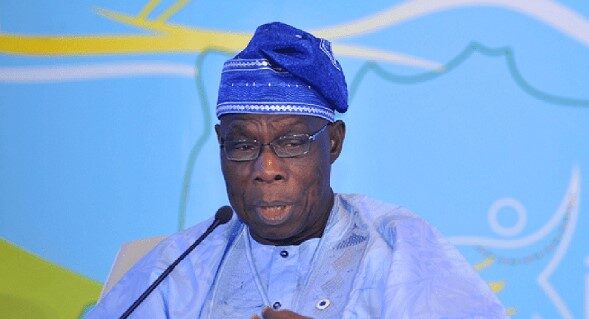FORMER Nigerian President Olusegun Obasanjo has recalled a period in the nation’s history when global powers particularly the United States held Nigeria in such high esteem that major policy decisions in Africa were never made without first informing Abuja.
News Point Nigeria reports that Obasanjo made the statement on Monday in Abeokuta, Ogun State, while addressing participants at the Presidential Youth Mentorship Retreat (6.0) organised by the Youth Development Centre of the Olusegun Obasanjo Presidential Library (OOPL).
Although he did not directly mention the ongoing diplomatic tension sparked by U.S. President Donald Trump’s recent threat of military intervention in Nigeria, Obasanjo referenced his experience under late U.S. President Jimmy Carter, a move seen by many observers as a subtle comparison.
“When I was military Head of State, President Jimmy Carter would not do anything in Africa without informing us,” Obasanjo said.
“They were not taking permission from us, but they would say: ‘We are doing this.’”
Obasanjo and Carter, who died in December 2024, were known to share a strong friendship. In January, Obasanjo hosted a memorial service in Abeokuta celebrating the life and contributions of the 39th U.S. President.
The former Head of State lamented that Nigeria lost much of the respect and influence it once commanded on the global stage after independence until the Muritala-Obasanjo military leadership restored confidence in the country’s capacity to lead the African continent.
“The Americas saw the possibility of Nigeria being Africa’s leader. At Independence, the world saw Nigeria as a rising giant,” he said.
“But soon after, we lost that. When Muritala and I came into government, we brought it back.”
He noted that during his administration, three U.S. Presidents visited Nigeria, a diplomatic milestone that has not been replicated since he left office in 2007.
Obasanjo reminisced about the military officers of his era who were mostly under 40 years old and driven by national ideals not self-enrichment.
“We were young, we were idealistic. We knew what we wanted for Nigeria. It was not about money,” he said. “We were probably a bit naïve, but our ambition was not money.”
Speaking on the theme: “Africa and the Conflicts in Europe and the Middle East”,
Obasanjo challenged African youths to take power from ageing leaders who refuse to step aside.
He cited the recent Cameroonian election featuring 92-year-old President Paul Biya as an example of leadership stagnation in Africa.
“You are leaders of today, not tomorrow. If you leave your tomorrow to leaders of today, they will destroy it,” he warned. “You must be positively disruptive; otherwise you will have no role to play.”
He also urged young people to leverage their numerical strength: “The number will only matter when you use the number to your advantage,” he added.
However, he expressed concern that some youths already in government have failed to justify the widespread belief that young people represent a better future.







